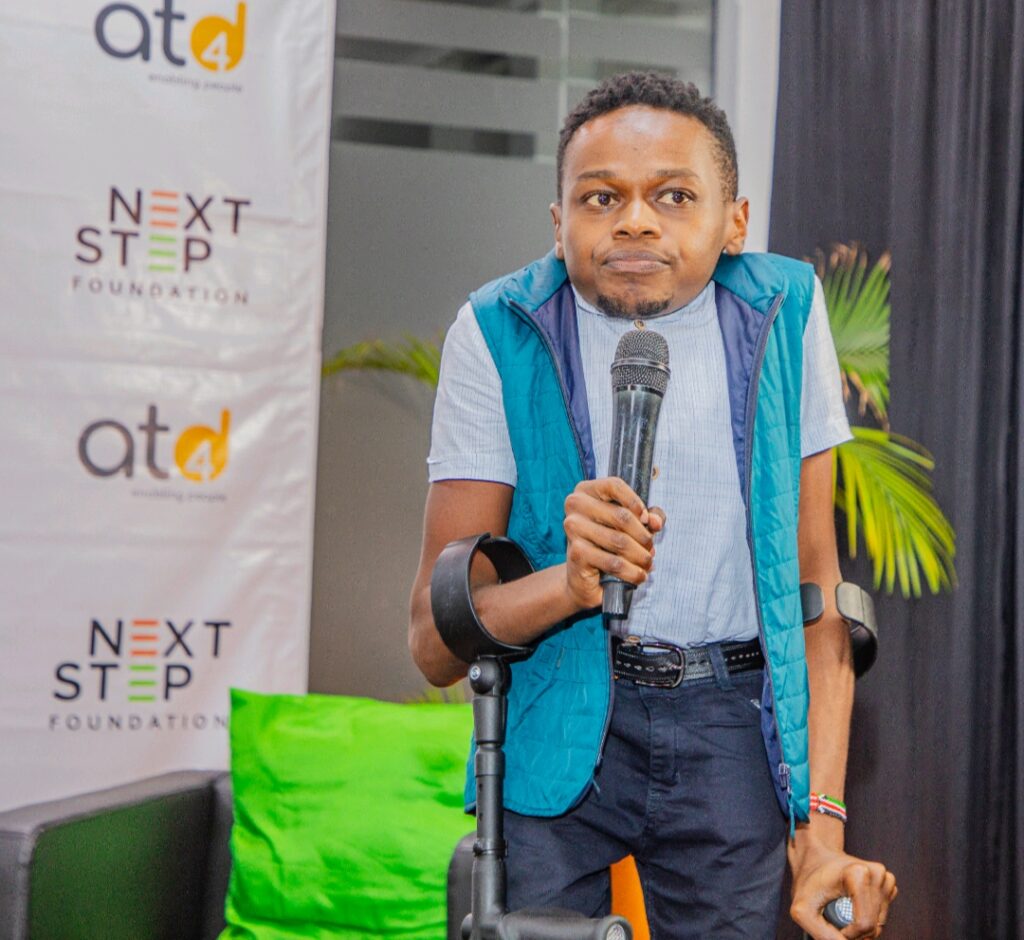Center for AI4SDG Launched to Address Critical Challenges Faced by AI&SDGs

The Next Step Foundation in partnership with Assistive Technologies for Disability Trust (AT4D) have partnered to launch the Center for AI4SDG which will address key challenges for artificial intelligence (AI) & sustainability development goals (SDGs) in the Global South including Data Availability and Quality, Capacity & Skills Gap and Ethical and Social Implications of AI.
Speaking at the event key speaker Philip Thigo the UN High Level Advisory Board Member on AI delved into the potential of AI to drive progress towards Sustainable Development Goals. He lauded steps being undertaken by local startups to alleviate inequality especially among people with disabilities as well as the elderly. Thigo added that the UN High Level Advisory Board on AI is at the forefront in fostering inclusivity with its Interim Report: Governing AI for Humanity identifying the following principles that should guide the formation of new global AI governance institutions: Inclusivity, Public interest, Centrality of data governance, prioritize universal buy-in by countries and stakeholders and to be anchored in the UN Charter, International Human Rights Law, and the Sustainable Development Goals.
“I think Kenya is one of the few countries right now that is developing an Ai strategy in a very inclusive way which is very laudable, at an UN level we are trying to build strategy from a multi stakeholder approach and ecosystem and we can only do that by looking at the enablers. And what do we need to enable the development of safe, inclusive and trusted AI ecosystem? Part of that is data governance,” Thigo said.
On its part the Next Step Foundation says it is uniquely positioned to facilitate the creation of high-quality, annotated training data and help close the skills gap to unleash the positive power of AI in Africa. This is in consideration that Africa currently lacks the data and the expertise to fully implement ethical AI.
“We have to take advantage as a continent of data that is already in our fingertips including data on agriculture, education, geography etc that is available to us. The first step towards bridging this data gap is thus first digitization. Once we have information available it is much easier even for people living with disabilities to utilize the data to make their lives easier and contribute more to society” says Christopher Harrison, J.D, Ph.D – Executive Chairman, Next Step Foundation
AT4D Executive Director Bernard Chiira says the partnership will leverage on his company’s expertise as a leading disability innovation organization focused on startup and inclusive innovation ecosystem development and will empower the Global South with AI that is synonymous with progress, equity, and sustainability and in accordance with the highest aspirations of human development as outlined by the SDGs.
“There are many disabilities that can benefit from the use of AI. In the case of speech impairment for example there is a lot of R&D going on in this country on how to use artificial intelligence in speech impairment and that is to build speech therapy solutions for people with disabilities. We have to start thinking of assistive technology AI at the application level, which comes down to different applications. That could be software and hardware that have Ai embedded technology to enable everyday living for people with disabilities,” Chiira added.
The event also saw a showcase by Next Step Foundation’s incubated startups such as EZspeech, Seizure Assistant, Knock Knock and Signverse.





